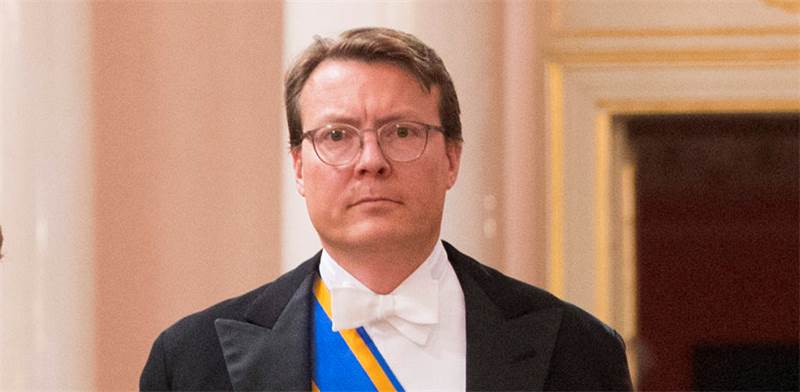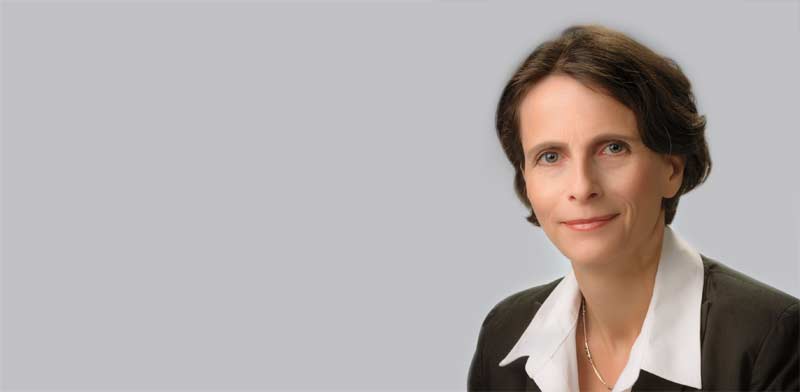As is well-known, historically the House of Oranje has no moral problems when it supports fascism:
Dutch prince seeks Israeli high-tech cooperation

6 Sep, 2018 13:13
Prince Constantijn van Oranje, the brother of King Willem-Alexander, is in Israel with Dutch investors.
Prince Constantijn van Oranje of the Netherlands, head of Dutch innovation organization StartupDelta, arrived in Israel this week on a visit to Israel for the purpose of promoting cooperation with local venture capital funds and investors, accompanied by Dutch investors and angels seeking investments in startups. The visit is part of the Netherlands' effort to encourage Israeli companies to locate themselves in the country and to learn from Israel's experience in establishing technology and innovation centers.
Van Oranje is quite an unusual guest. His full name and title is His Royal Highness Constantijn Christof Frederik Aschwin of the Netherlands, Prince of Orange-Nassau, Lord Jonkheer van Amsberg. He is the brother of Dutch King Willem-Alexander. He is Knight Grand Cross of the Order of the Netherlands Lion and Knight of the Order of the Gold Lion of the House of Nassau. He is fourth in the line of succession to the Dutch throne.
Prince Constantijn does not stand on ceremony. He studied law at Leiden University, received an MBA from INSEAD, and worked in management and consultation positions in economic organizations. In recent years, he has been a special high-tech emissary for Dutch high tech, founded StartupDelta, and appears to be enjoying every minute. He readily admits that his royal title helps him get high-tech meetings; who is going to turn down a meeting with royalty?
In Israel, he will attend the DLD conference and has already met with a series of senior executives and high-tech fund managers. One of the first was JVP founder and chairperson Erel Margalit, whose office has become a pilgrimage site in recent months, attracting visits from Jack Ma and the innovations ministers of France and the UK. The Dutch prince then met with people from the Ourcrowd crowdfunding platform, and attended a dinner yesterday for angels and investors.
"Our main message for Israelis is that the Netherlands is undergoing major development," van Oranje told "Globes." "We are among the strongest ecosystems in Europe, with extremely high-speed and active Internet, the largest seaport in Europe, and the best-connected airport, to which we are adding investment in startups. This description makes us the most suitable place to found a business if you want to get to the continent."
Cybersecurity, agritech, and medtech
Trade relations between Israel and the Netherlands are excellent, including ties in technology. The two countries signed an economic development agreement on innovation and held meetings for technological cooperation attended by prominent Israeli high-tech companies. Many Israeli companies have placed their European headquarters in the Netherlands and employ local workers and Israelis there. Van Oranje is now seeking to expand these ties.
"Globes": What are you looking for in Israel: startups, mature companies, or investors?
Van Oranje: "Both investors and companies in strategic areas, such as cybersecurity, and in areas in which the Netherlands is strong, such as agritech, food tech, and medtech. Israel is a very dynamic place, and concerns like JVP can also help make the ecosystem in the Netherlands more advanced."
At present, we are seeing an increase in European investments in Israeli high tech. Will we see more Dutch investors here?
"There are already Dutch companies that have invested in Israel, such as Philips and Shell. Many of our investors are looking at Israel, mainly strategic verticals in which you lead. In travel tech, many players from the Netherlands are already here. Several people from our delegation are angels looking for investments in companies in the early stages."
You worked a few years in the European Union, an organization with tense relations with Israel. Do you think that the political aspect affects doing business with Israel?
"I think that relations in innovation and science are prospering, especially if you look at the number of international companies here and the number of visitors coming here from Europe and other places. These are relations on several levels. I think that we have long-term and deep relations with Israel with an open dialogue that sometime deals with more difficult political problems, but I'm here only on matters pertaining to startups and technology, in which there's a lot of international cooperation."
"It is good that you are direct"
There are a number of startup centers in the Netherlands. The best known is in Amsterdam, while a high-tech campus with hundreds of companies operates in Eindhoven, the best Dutch university is in Utrecht, and the biggest cyber hub in Europe is located in the Hague. The Netherlands founded StartupDelta in 2014 on the basis of public-private cooperation in order to further enlarge the ecosystem and initiate international cooperation.
"Before we founded the organization, there were interesting technological developments, but they had to be connected with each other, and the world had to be told, 'This is what we're doing,' because there's a lot of innovation in the Netherlands, but people don't usually go outside and talk about it," van Oranje explains. "If you see what has happened in the Netherlands in the past three or four years, there's a giant boom in startup activity."
How do you deal with the very strong countries in technology around you, such as France, Germany, and the UK?
"Every companies decides where is best for it to operate. I don't regard this as competition. The Netherlands is among the most open and practical countries, with minimal bureaucracy. There is an investment atmosphere and people speak English. We have a lot of available talent, because the entire country is concentrated within 30 minutes of Amsterdam. Berlin may be an electronics trading center, but the next center in Dresden or Stuttgart is very far away."
RELATED ARTICLES
Nevertheless, other countries are concentrating on high-tech investment.
"It's true that there's no 'Dutch model,' but the government is investing and there is a government bank for promoting investments with a €2.5 billion budget that will grow to €6 billion. The Netherlands' power is not in any giant vision; it's in pragmatism, supporting entrepreneurs, and a decentralized model. There are no governmental dictates in the Netherlands; there is bottom-up work. What is happening in Paris is also impressive, but I asked an investment fund manager there whether he is recommending the location there to his companies, and he said that Paris and Berlin were excellent for local startups, but not for companies from outside."
European companies are a little afraid of Israelis' directness and lack of patience. Are differences in mentality liable to make cooperation between Israel and the Netherlands difficult?
"They say that the Dutch are much more direct than the British. The Israelis may be at the end of the hutzpa scale, but in comparison with the rest of the world, we're pretty close. I think that this is a huge asset you have in a startup ecosystem that people are direct and tell the truth. Culturally, you could say that you have an appetite for taking risks and a willingness to make things happen, while the Dutch like new things. They're good at challenging the authorities and always ask, 'Why is it like that? Maybe it can be done differently.' There's a lot of room for cooperation."
How do you divide your time between your royal obligations and support for high tech?
"The royal house has very few obligations. I don't get a salary from the state. They expect us to make a living and have a career. Half of my brothers and relatives are entrepreneurs."
Published by Globes [online], Israel business news - www.globes-online.com - on September 6, 2018




Geen opmerkingen:
Een reactie posten